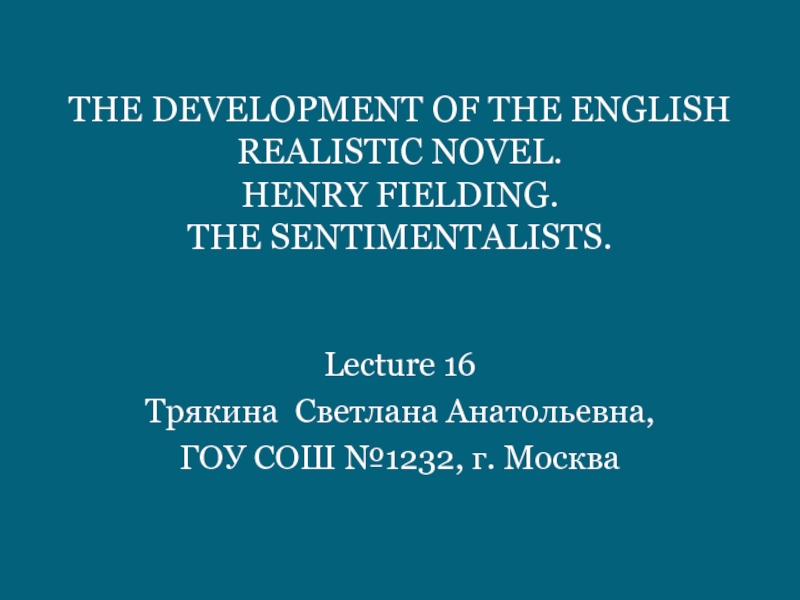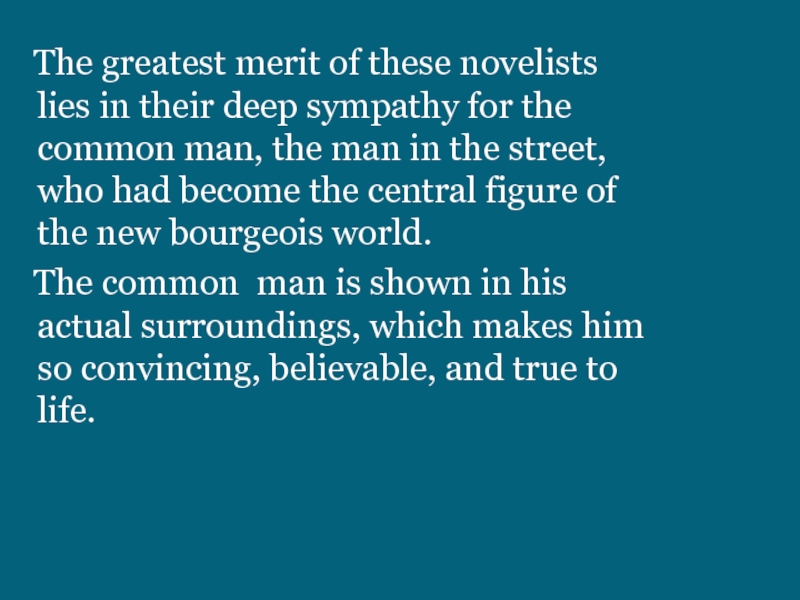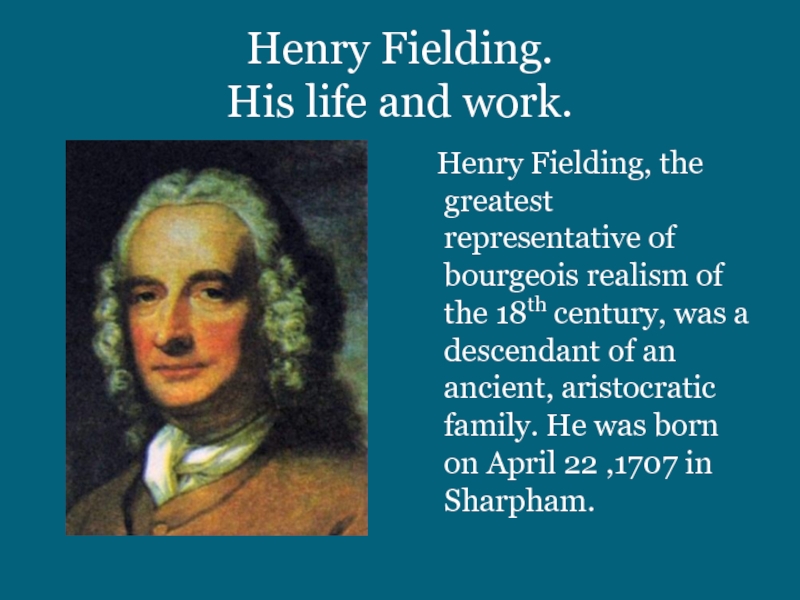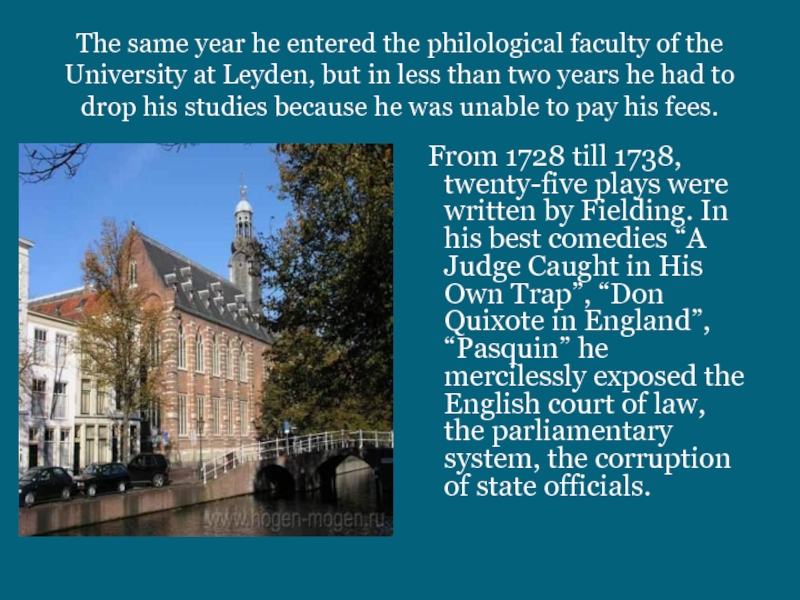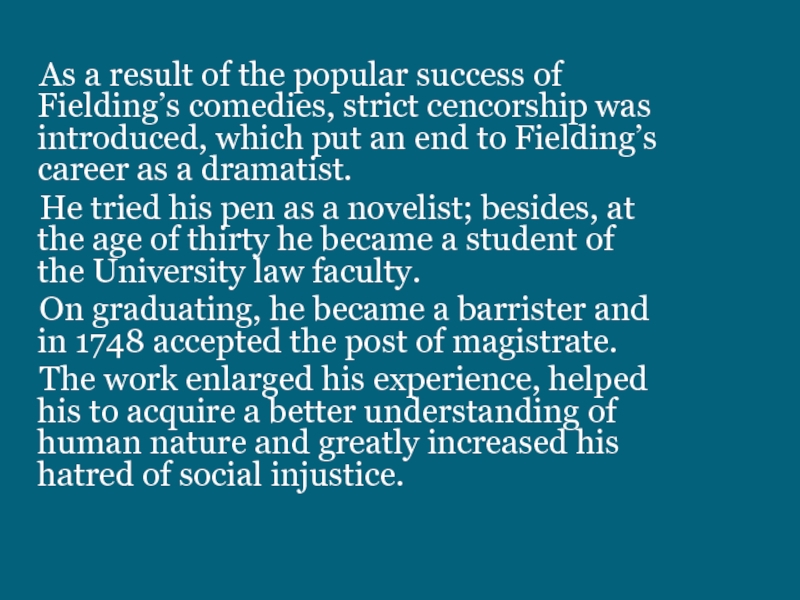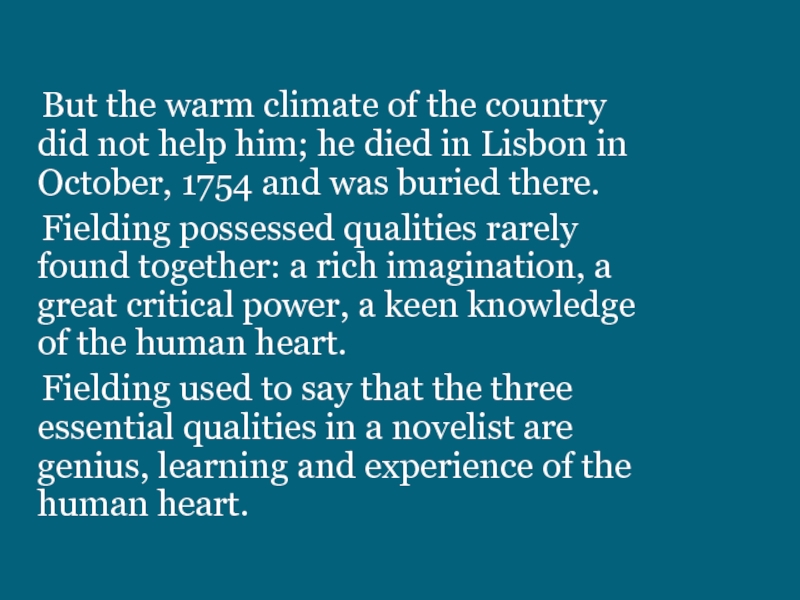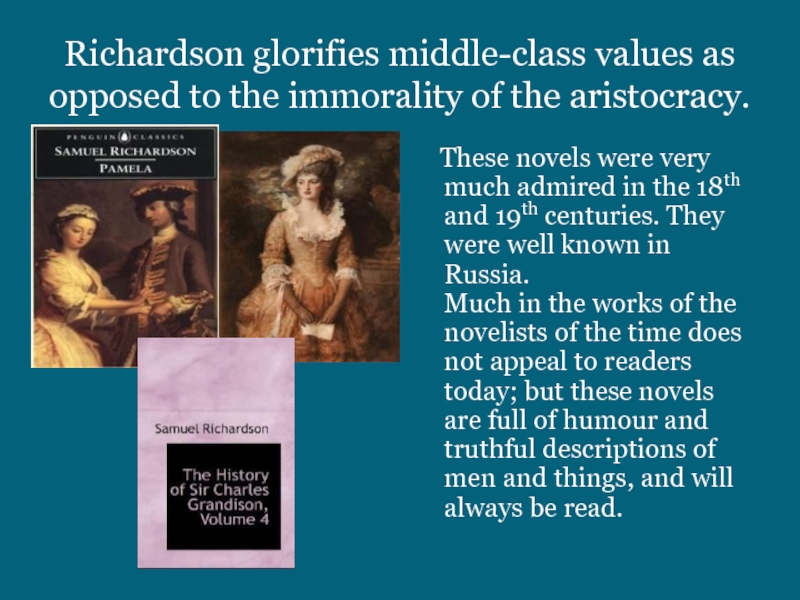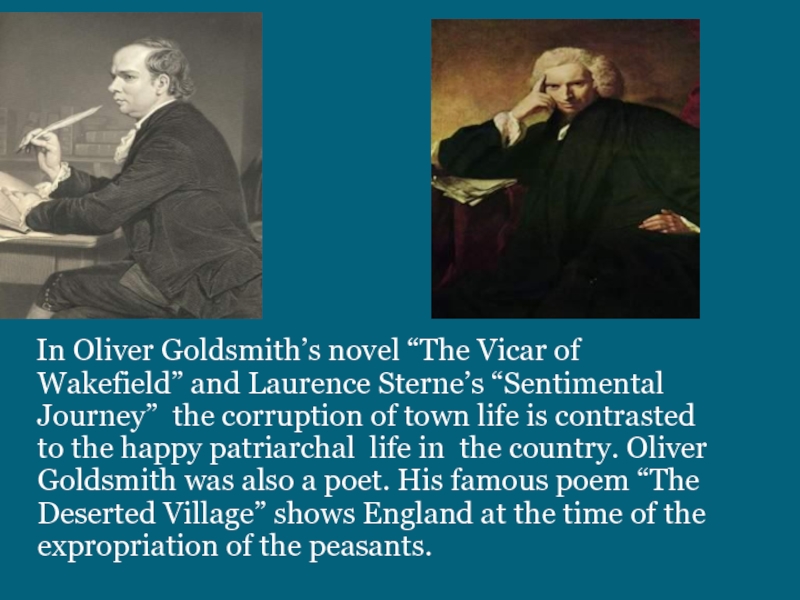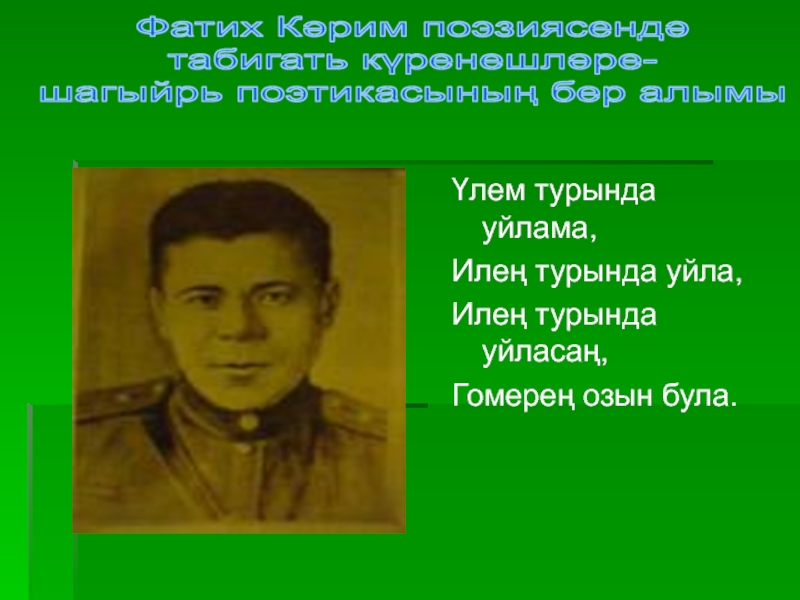Разделы презентаций
- Разное
- Английский язык
- Астрономия
- Алгебра
- Биология
- География
- Геометрия
- Детские презентации
- Информатика
- История
- Литература
- Математика
- Медицина
- Менеджмент
- Музыка
- МХК
- Немецкий язык
- ОБЖ
- Обществознание
- Окружающий мир
- Педагогика
- Русский язык
- Технология
- Физика
- Философия
- Химия
- Шаблоны, картинки для презентаций
- Экология
- Экономика
- Юриспруденция
The Development of the English Realistic Novel. Henry Fielding. The Sentimentalists
Содержание
- 1. The Development of the English Realistic Novel. Henry Fielding. The Sentimentalists
- 2. The foundations of early bourgeois
- 3. These demands were satisfied when the great
- 4. The greatest merit of these
- 5. Henry Fielding. His life and work.
- 6. He studied at the old-established boys’ school
- 7. The same year he entered the philological
- 8. As a result of the
- 9. In the period from 1742
- 10. But the warm climate
- 11. The qualities of candour and sincerity are
- 12. The Sentimentalists. The optimism felt
- 13. The first representative of the sentimental school
- 14. Richardson glorifies middle-class values as opposed to
- 15. In Oliver Goldsmith’s novel “The
- 16. Источники:Кукурян И.Л.,”An Outline of English Literature”М., изд-во МГУ,1997.Иллюстрации:http://www.intem.ru/sc/uz/179/http://hogen-mogen.ru/cities/leidenhtmhttp:/gerdfehrle.fastpage.name/nephewwofsquireallworthyhttp://misadventureofmoppet.wordpress.com/2010/09/30/pamela-or-virtue-rewarded-by-samuel-richardson/http://blogs.privet.ru/user/romanovaoa/tags/106745http://www.books.ru/shop/ibooks/19780554341088http://mostevent.ru/view_social.php?id=1771http://az.lib.ru/img/k/kuzxmin_b_a/text_o-0020/index.shtmlhttp://elite-home.narod.ru/writer143c.htmhttp://johngushue.typepad.com/blog/2010/02/index.htmlhttp://www.jesus-college/college-images/http:imhonet.ru/person/10401/
- 17. Скачать презентанцию
Слайды и текст этой презентации
Слайд 1THE DEVELOPMENT OF THE ENGLISH REALISTIC NOVEL.
HENRY FIELDING.
THE SENTIMENTALISTS.
Lecture
16
Слайд 2 The foundations of early bourgeois realism were laid
by Daniel Defoe and Jonathan Swift, but their novels, though
of a new type and with a new hero, were based on imaginary voyages and adventures supposed to take place far from England. Gradually the readers’ tastes changed. They wanted to find more and more of their own life reflected in literature, their everyday life of a bourgeois family with its joys and sorrows.Слайд 3These demands were satisfied when the great novels of Samuel
Richardson, Henry Fielding, Tobias Smollet appeared one after another.
Слайд 4 The greatest merit of these novelists lies in
their deep sympathy for the common man, the man in
the street, who had become the central figure of the new bourgeois world.The common man is shown in his actual surroundings, which makes him so convincing, believable, and true to life.
Слайд 5Henry Fielding.
His life and work.
Henry Fielding, the greatest
representative of bourgeois realism of the 18th century, was a
descendant of an ancient, aristocratic family. He was born on April 22 ,1707 in Sharpham.Слайд 6He studied at the old-established boys’ school of Eton.
At the age of twenty he started writing
for the stage, and his first play “Love in Several Masques” was a great success with the public.Слайд 7The same year he entered the philological faculty of the
University at Leyden, but in less than two years he
had to drop his studies because he was unable to pay his fees. From 1728 till 1738, twenty-five plays were written by Fielding. In his best comedies “A Judge Caught in His Own Trap”, “Don Quixote in England”, “Pasquin” he mercilessly exposed the English court of law, the parliamentary system, the corruption of state officials.
Слайд 8 As a result of the popular success of
Fielding’s comedies, strict cencorship was introduced, which put an end
to Fielding’s career as a dramatist.He tried his pen as a novelist; besides, at the age of thirty he became a student of the University law faculty.
On graduating, he became a barrister and in 1748 accepted the post of magistrate.
The work enlarged his experience, helped his to acquire a better understanding of human nature and greatly increased his hatred of social injustice.
Слайд 9 In the period from 1742 to 1752 Fielding
wrote his best novels:
”Joseph Andrews”,
”The
Life of Mr. Jonathan Wild the Great”,“The History of Tom Jones, a Foundling”.
All these novels, excellent as they were, didn’t make him rich: only his publishers prospered.
Fielding continued to act as a judge till the year 1754, when he had to leave England for Portugal to restore his health, which had begun to fail.
Слайд 10
But the warm climate of the country
did not help him; he died in Lisbon in October,
1754 and was buried there.Fielding possessed qualities rarely found together: a rich imagination, a great critical power, a keen knowledge of the human heart.
Fielding used to say that the three essential qualities in a novelist are genius, learning and experience of the human heart.
Слайд 11The qualities of candour and sincerity are especially apparent in
Fielding’s works. His characters are living beings of flesh and blood,
a combination of contradictions of good and bad.He appreciates such virtues as courage, frankness and generosity.
The most detestable vices for him are selfishness and hypocrisy.
All this found the expression in his masterpiece “ The History of Tom Jones, a Foundling”
Слайд 12The Sentimentalists.
The optimism felt in literature during
the first half of the 18th century gave way to
a certain depression as years went by. Towards the middle of the century a new trend, that of Sentimentalism, appeared.Sentimentalists were influenced by the French writer Rousseau, they thought that civilization was harmful to humanity.
They believed that man should live close to nature and be free from the corrupting influence of town life.
